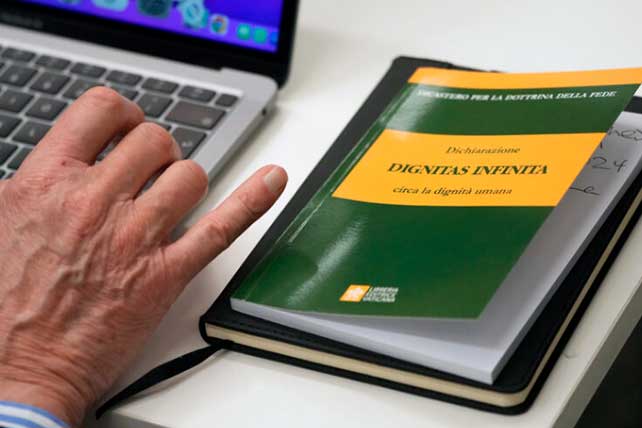Fernandez’s question about Francis’ lasting imprint on the church may have reflected his own sense that change may follow Francis’ pontificate. The cardinal went on to discuss the evolution of church doctrine, saying the church has changed its perspective on slavery and the death penalty over time as well.
“The church hasn’t always really effectively recognized the dignity of all people,” said Sandie Cornish, a senior lecturer at the Australian Catholic University’s School of Theology. “This is an area where we continue to grow in understanding,” she added.
While the question of whether doctrine can change is “hotly debated by theologians,” said Cornish, “it’s clear in the field of Catholic social teaching by looking at the documents and proclamations through time that there is development through teaching.”
The contradictions between the church’s official doctrine and the pope’s example might be a sign that change is bubbling beneath the surface, according to Cornish.
With its broad interpretation of human dignity, the Vatican document might pave the way for a new evolution of doctrine, Cornish suggested. Francis’ insistence on synodality and on discerning what the Holy Spirit is trying to teach the church might be an important step in this direction, she added.
“Often right before there is actual change in the teaching of the church you find ambiguous pronouncements,” she said, pointing to the church’s changing views on migration and female employment. “It’s a sign that something is about to change, that we are struggling to understand something.”
This article originally appeared here.

